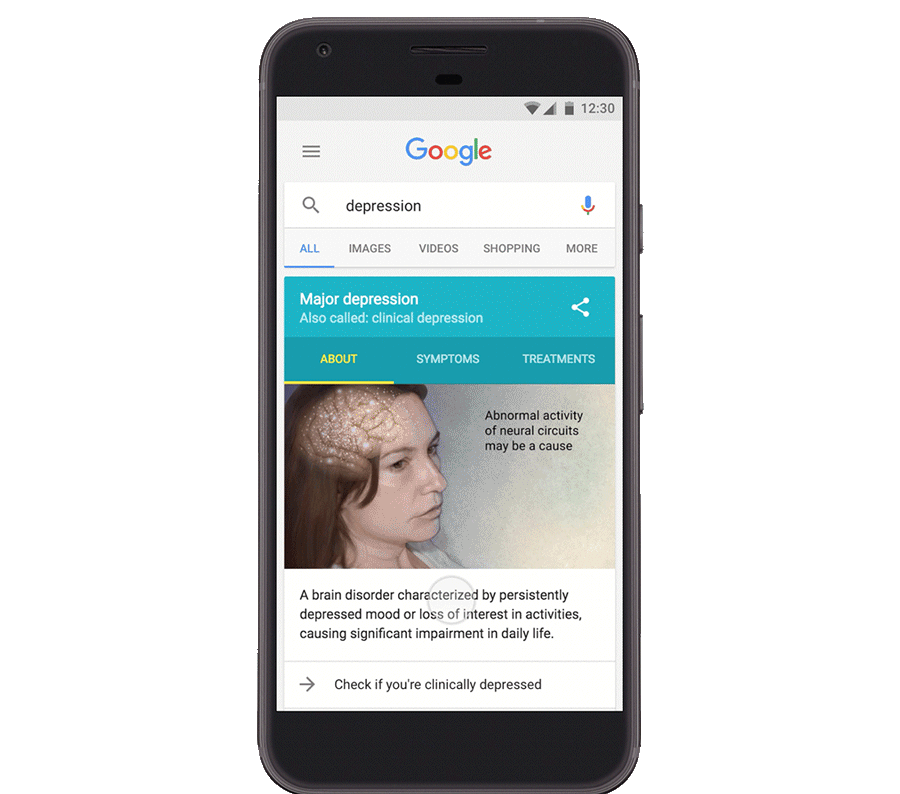People who look up depression using Google search on a mobile device will now be offered a questionnaire that will help them assess whether they are clinically depressed.
![]()
© maxpro / Shutterstock.com
Google has partnered with the US National Alliance on Mental Illness (NAMI) to roll out the initiative, which is currently only available to US users.
Clinical depression is very common, affecting about one in five Americans at some point in their lives. However, only about 50% of people receive treatment for the condition. Estimates also suggest that people with depression experience delays of up to 8 years in receiving treatment, after the onset of symptoms.
Clinical depression is treatable and NAMI believes that the questionnaire will help to educate and inform people about the condition so that they can seek treatment and improve their quality of life.
Previously, when people searched depression, they were presented with a knowledge panel providing information about the condition and possible treatment options. Now, a clinically validated screening questionnaire called Patient Health Questionnaire-9 (PHQ-9) will also be available.
Users will be prompted to click on “check if you’re clinically depressed,” which will take them to the self-assessment. The results of the questionnaire can help people determine how depressed they are and whether they need to be evaluated.

NAMI points out that this questionnaire should not be regarded as a replacement for seeing a qualified health profession, but as a way of helping people to get the help they need more quickly: “While this tool can help, it’s important to note that PHQ-9 is not meant to act as a singular tool for diagnosis. The results of the PHQ-9 can help you have a more informed conversation with your doctor."
The PHQ-9 is made up of nine questions asking whether a person has “little interest or pleasure in doing things,” or “trouble concentrating on things, such as reading the newspaper or watching television,” for example.
Various tests of the tool have shown it to be concise and effective, accurately detecting the symptoms of clinical depression. Google product manager Vidushi Tekriwal says that people who fill out PHQ-9 will not have their answers stored or be targeted by advertising as a result.